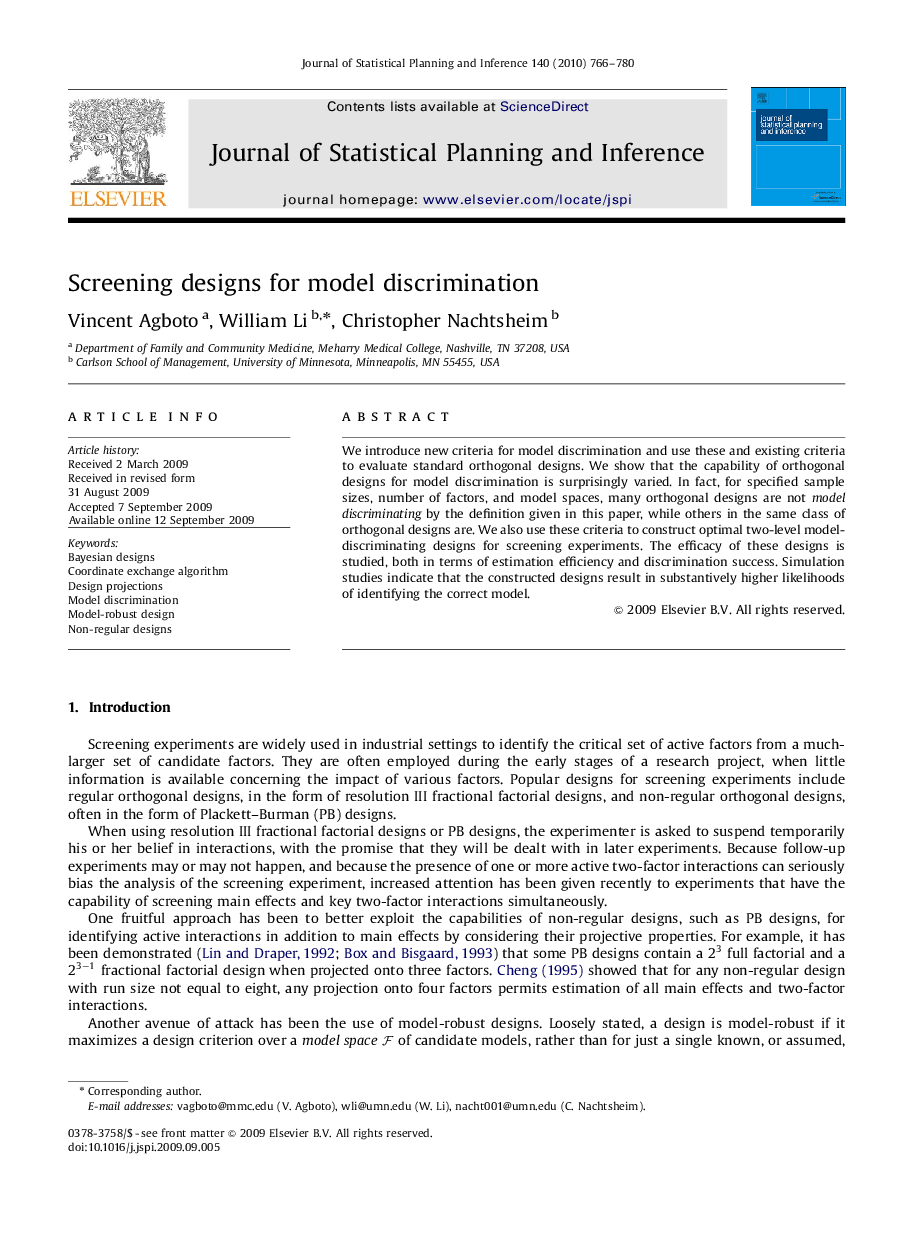| Article ID | Journal | Published Year | Pages | File Type |
|---|---|---|---|---|
| 1147863 | Journal of Statistical Planning and Inference | 2010 | 15 Pages |
We introduce new criteria for model discrimination and use these and existing criteria to evaluate standard orthogonal designs. We show that the capability of orthogonal designs for model discrimination is surprisingly varied. In fact, for specified sample sizes, number of factors, and model spaces, many orthogonal designs are not model discriminating by the definition given in this paper, while others in the same class of orthogonal designs are. We also use these criteria to construct optimal two-level model-discriminating designs for screening experiments. The efficacy of these designs is studied, both in terms of estimation efficiency and discrimination success. Simulation studies indicate that the constructed designs result in substantively higher likelihoods of identifying the correct model.
